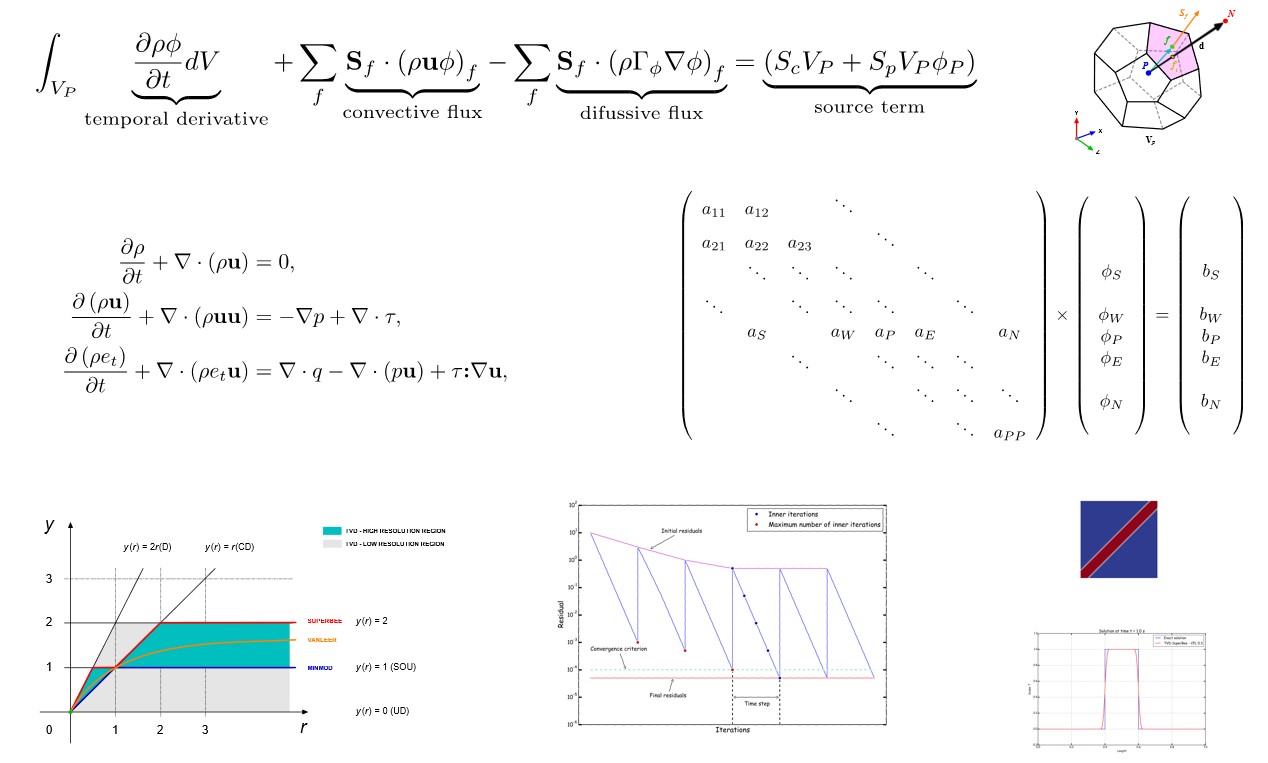Advanced FVM Course
 |
To support the need for increased competitiveness and to deal with the rapidly growing complexity of products, processes, and systems, CFD solvers and multi-physics simulation software are commonly used in industry. Unfortunately, most engineers and researchers have limited knowledge of what a CFD solver is doing. The object of this course is to close that knowledge gap. In this introductory finite volume method (FVM) course, we cover the basic theory behind the FVM method used in most commercial and open-source CFD solvers (included OpenFOAM and Ansys Fluent). In this course, we also address discretization techniques, solution strategies, and best standard practices when using the FVM to tackle multi-physics problems.
Topics to be covered:
Introduction to CFD
Introduction to the FVM - Theoretical background
Space discretization techniques (convective, laplacian, gradient and source terms)
Time discretization techniques
Linear solvers (Newton-Krylov and multigrid solvers)
Solution strategies - Pressure-velocity coupling methods
Unsteady and steady solvers
Grid and time dependency studies - Order of convergence in space and time
Mesh quality issues
How to get a converged solution from scratch
Acceleration and stabilization techniques
Understanding the residuals
Boundary conditions and initial conditions
Discretization requirements according to the physics involved
Choosing the right numerics
Validation and verification - The method of manufactured solutions (MMS)
Best standard practices - Tips and tricks
Numerical playground and validation cases
For more information, send an email to This email address is being protected from spambots. You need JavaScript enabled to view it.
Get access to the slides and tutorials at the following link: https://bit.ly/3Wbvarn
Disclaimer
Wolf Dynamics makes no warranty, express or implied, about the completeness, accuracy, reliability, suitability, or usefulness of the information disclosed in this training material. This training material is intended to provide general information only. Any reliance the final user place on this training material is therefore strictly at his/her own risk. Under no circumstances and under no legal theory shall Wolf Dynamics be liable for any loss, damage or injury, arising directly or indirectly from the use or misuse of the information contained in this training material.
